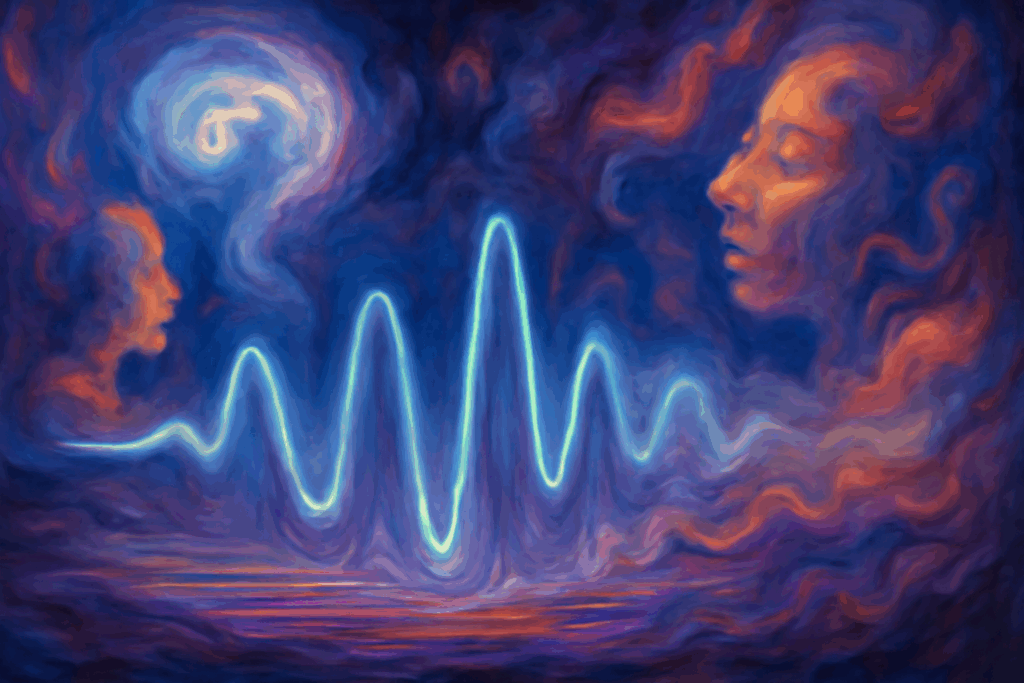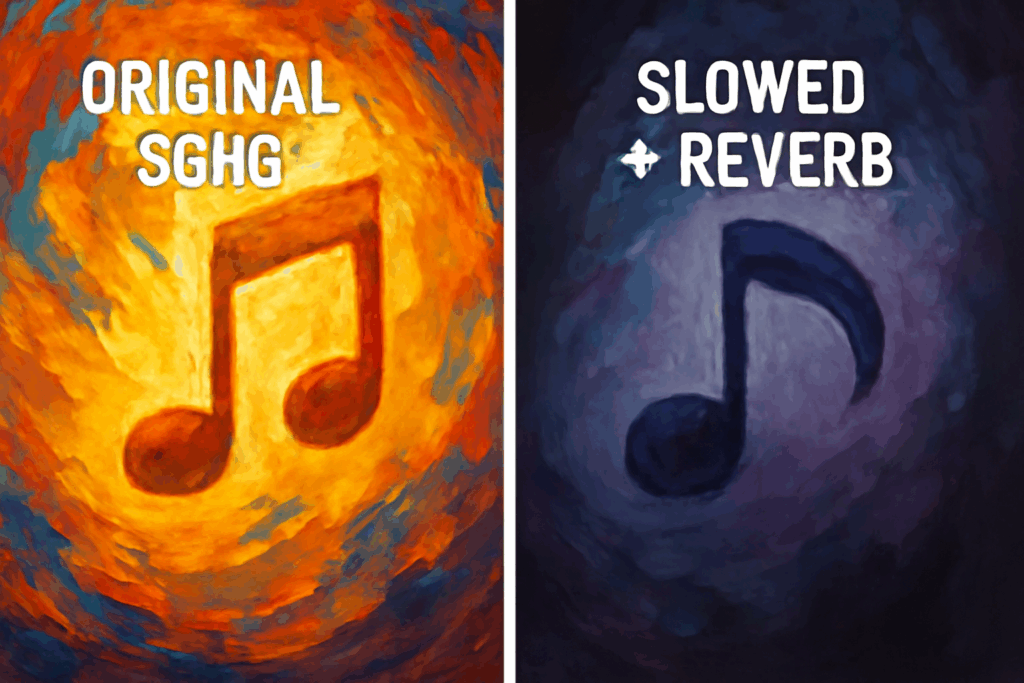There’s a moment, usually late at night, when you stumble upon a song you love—but this time, it feels different. It’s slower, deeper, with echoes swirling in space. The slowed + reverb trend has swept YouTube and TikTok, transforming chart hits into cinematic soundscapes. For some, it’s a portal to nostalgia, a way to be alone with a memory. For others, especially musicians and audiophiles, it’s the ruin of nuance: a sonic mudslide where the heart of a song gets lost.
But as popular as it’s become, there’s a rising countercurrent—listeners, producers, and artists who say “no” to slowed and reverb. They argue it smears artistic intent, saps emotional energy, and diminishes the skill behind original production.
Why is there so much pushback? Let’s take a deep dive, pulling in real anecdotes, expert perspectives, data, and hands-on Reddit opinions, to understand why slowed + reverb might not deserve its endless replay.

What Is Slowed + Reverb? More Than Just a Music Effect
Slowed and reverb is exactly what it claims: take a song, slow the tempo, drop the pitch, and add artificial reverb. The result can make a pop song sound melancholy, introspective, or “dreamy”. The combination harks back to chopped-and-screwed hip-hop from Houston—where DJs slowed down tracks and doused them in syrupy effects to match a slowed-down lifestyle. Today, anyone can make a slowed + reverb track with online generators or apps in under a minute.
Yet the apparent simplicity is at the core of why many listeners and musicians bristle at the movement. On Reddit, one user vented:
“They’re so low effort… I don’t understand why people don’t just listen to the original song.”
The Emotional Appeal—and Its Critics
Proponents argue that slowed + reverb edits recontextualize familiar songs, layering on extra weight, longing, or wistfulness that the originals might lack. For fans, it’s about “hearing stuff in different pitches—sometimes it suits the instrumental better.” Others claim it helps them process lyrics at a slower pace, even aiding memorization or providing comfort during lonely nights.
But there’s a vocal contingent who say it does the opposite:
- “It throws off the rhythm and makes the track sound awkward. The reverb just makes it muddy in an unflattering way.”
- “All slowed and reverb remixes feel the same: deep voice, identical tempo. The original songs have soul and craft. Slowed and reverb versions don’t.”
- “They undo the work of the mixing engineer by adding sloppy reverb, making the mix messy or unclear.”
The Downside of Slowed + Reverb: Detailed Subtopics
Artistic Integrity and Originality
Many musicians feel that slowed + reverb is the musical equivalent of painting a mustache on the Mona Lisa. According to artist discussions on Reddit:
- “It’s aimed at people lacking creativity who slow down and add reverb to other artists’ work for online fame.”
- “I’d be furious if someone ripped my song, slowed it, and racked up streams. No skill required for a ton of views.”
The core issue? The trend rewards low-effort edits over true reinterpretations or covers. It’s often equated to online “parasitism,” simply capitalizing on the hard work of original artists.
Table: Original vs. Slowed + Reverb: Key Differences
The Problem of Sound Quality
Audio engineers and producers consistently warn: reverb—when misapplied—muddy mixes and blurs sound. When an amateur adds too much reverb, details in the music get lost, causing vocals to become unintelligible and instruments to lack definition.
Data Snapshot: Common Sound Complaints with Slowed + Reverb
| Complaint | % of Negative Reddit Comments (unofficial sample) |
|---|---|
| Muddy or unclear sound | 65% |
| Ruined rhythm/energy | 37% |
| Songs sound same/boring | 22% |
| Lacks creativity/effort | 29% |
| Annoying algorithm spam | 18% |
Based on a mini-analysis from anecdotal Reddit threads and comment patterns.
Technical insight: Music producers note that proper reverb requires nuance; long decay times and indiscriminate application can destroy a mix’s clarity. Novices who add reverb atop an already reverberant track “undo the work of the mixing engineer” and lose the song’s punch and intelligibility.

Psychological and Physical Effects
Scientific studies confirm that slowing tempo and dropping pitch can relax the body, reduce blood pressure, and enhance reflection. Some listeners report that “slowed” versions literally feel more calming, connecting to times of loneliness or self-reflection.
But there’s another side: the effect often leans toward sadness—sometimes uncomfortably so. Slowing songs can evoke an artificial sense of nostalgia or melancholy that wasn’t in the original, potentially leading listeners to over-associate tracks with negative or passive moods.
“It changed my mood in a minute—sad songs just felt sadder and made me think more about everything in a slower state. It’s hard to explain, but it can be incredibly soothing or just make you sink into yourself.”
For some, that’s the appeal; for others, it’s an unwanted emotional manipulation.
Monetization and Copyright: Slowed + Reverb’s Legal Grey Zone
Many slowed + reverb creators post edits of copyrighted songs without explicit permission. While some edits fly under the radar (YouTube and TikTok are rife with them), the legal risks remain high:
- Copyright Violation: Slowing a song and adding reverb does not make it a new, unprotected work; the underlying melody and lyrics are still owned by the original artist or label. This means uploads are vulnerable to takedowns or copyright strikes.
- No Monetization: Even if creators don’t intend to profit, platforms may restrict or ban channels that repeatedly post slowed + reverb edits without licenses.
- Artist Frustration: Musicians often feel slighted that a derivative version gets traction while they earn nothing, fueling further resentment.
Saturation and Algorithm Fatigue
Online, many complain that slowed + reverb edits now saturate recommendations, leading to “algorithm spam.” One frustrated Redditor stated:
“It’s the easiest thing to do—no skill required for a ghkjillion views. My feed is full of copy-pastes, all with the same deep voice and reverb.”
Some believe it’s a shortcut for content creators to dodge copyright filters and rack up views, further degrading musical diversity.
The “Nostalgia” Question—Authentic or Fake?
Fans claim slowed + reverb invokes nostalgia even for tracks they’ve just discovered, which raises skepticism. Some musicians and listeners argue the so-called nostalgia is a kind of “emotional trick” created by low frequency and time-stretching, rather than any real memory.
“Unless you had a hi-fi with a reverb unit or mistakenly played a 45 at 33, what are you nostalgic for? It just feels like a YouTube tactic to repurpose music as ’content.’”
First-Hand Reddit Reactions—Voices From Both Sides
- For Slowed + Reverb:
- “I listen only to slowed and reverb versions. The lyrics are easier to memorize, and it adds unique ambiance, especially if you’re listening through good speakers. Sometimes, hearing instrumentation slowed down helps you appreciate details that get lost in the original pace.”
- “Slowed and reverb tracks hit different—especially at night. They make you think more, help you process stuff, and are just soothing in an odd way.”
- Against Slowed + Reverb:
- “It’s lazy and repetitive. Slowed, reverb, deep voice—every track sounds the same. No creativity. It ruins the original energy and rhythm.”
- “Adding reverb to music with already heavy effects is like dumping water into a muddy puddle.”
- “The trend is honestly annoying. It shows up everywhere and pretends to be something new, while great original remixes get ignored.”
Table: Pros and Cons of Slowed + Reverb
Final Thoughts
Slowed and reverb is more than an audio effect; it’s a cultural marker for a generation seeking space, calm, and escape in music. But it’s also a flashpoint—a symbol for debates about originality, artistry, legality, and taste.
Criticisms from listeners and musicians ring true: much of today’s slowed + reverb output is creatively thin and does little to honor the artistry of the originals. Still, the allure persists, especially for those late-night moments that call for a different kind of vibe.
Ultimately, whether you say “no” to slowed + reverb depends on what you seek from music: comfort or craft, nostalgia or nuance. What’s clear is that, as with any trend, blind repetition can breed fatigue—and spark conversations that, in themselves, might just influence the sound of the future.
10 Frequently Asked Questions About Slowed + Reverb
No, not without explicit rights or licenses. Slowing and adding reverb does not bypass copyright; uploads may be taken down or strike your account.
They see it as low-effort, creatively bankrupt, and believe it ruins the energy, rhythm, and clarity of the original.
Usually not—sound quality often suffers, with muddier mixes and loss of details. Most audio engineers advise against indiscriminate use of reverb.
It taps into feelings of nostalgia, melancholy, and chill, especially during late night listening. For many, it “hits different” emotionally.
Yes—slower tempo and lower pitch can help some listeners feel calmer, lower blood pressure, and encourage reflection.
No. Some accept it, especially if compensated via royalties. Others resent it when their creative intent is overridden by viral edits.
Most see it as technically simple but argue that when used thoughtfully (for a specific mood or context), it can have artistic merit. The current trend, however, is often seen as creatively lazy.
Because the process—slowing and adding reverb—applies a uniform effect, many tracks end up with a similar “deep voice” and tempo.

Candy is the social media manager and resident content creator at SSSlowedAndReverb. A DJ herself, she brings her deep love for slowed and reverb music into every post, blending real-world experience with internet culture to create content that resonates with fans and creators alike.